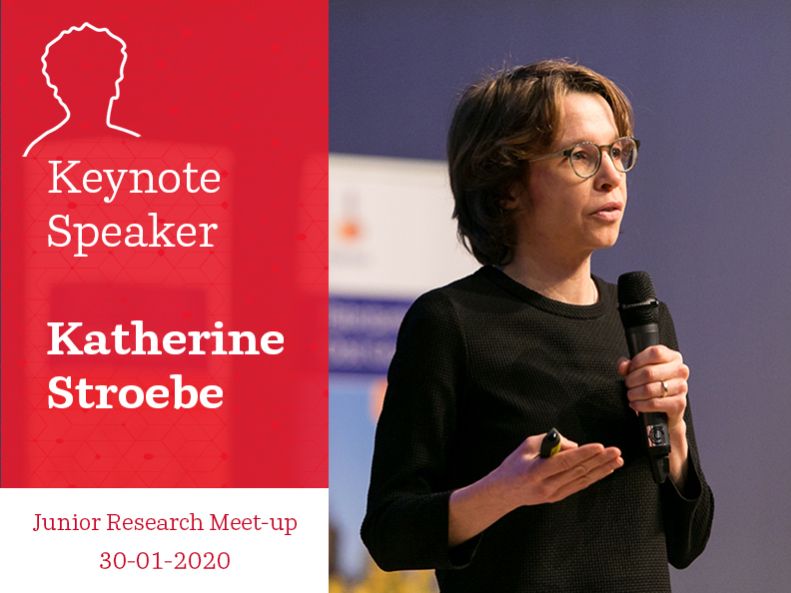Keynote Junior Research Meet-up: Katherine Stroebe - 'The impact of chronic disaster on health and coping: A social psychological perspective on the Groningen gas extraction'

Katherine Stroebe is an associate professor at the faculty of Behavioural and Social Sciences, University of Groningen. A key question in her work is how people behave when they feel unjustly treated as a group or collective (e.g. due to being an ethnic minority, female). In recent years, she has been investigating the social-psychological consequences of the earthquakes in Groningen.
Towards more attention to psychosocial consequences
In her research, Katherine focuses on intergroup relations and collective injustice and has always asked herself the question: “When do people take action against injustice they experience collectively and when do they not?”. In 2012, the earthquake in the village Huizinge caused by the gas extraction in the province of Groningen startled many residents of the province and caused damage to many buildings. When some small protests started up in 2013, Katherine and her team became interested in doing research on protesting and the developments of the protests in response to the earthquakes. They discovered how much people in the region were suffering from the gas extraction and how little public knowledge there was of this suffering. After quite some lobbying, this led to the large scale project she and Tom Postmes have been conducting since 2016 regarding the psychosocial consequences of the gas extraction in Groningen.
Collective actions taken in response to the earthquakes in Groningen
“You would expect people to demonstrate, take action and that collective action arises”. However, the protests remained small and not much action seemed to be taken by the residents of the affected area. “The question I had then was: does this mean that they are not doing anything or are we measuring wrong forms of collective action? And what we see in Groningen is that people do not necessarily demonstrate very actively to the outside world, but that they do get very close to each other, so they help each other, they exchange information… We call this in-group oriented collective action. I found this a striking finding”.
What public health and social psychology can learn from each other
On the one hand, Katherine feels that public health researchers can benefit from the field of social psychology with respect to the knowledge that this field has on the importance of being part of a group and how this can impact behavior and health. “These are areas we know a lot about: What makes people feel like they are part of a group? How do they interact in a group? What impact does that have on coping, but also on health?”. On the other hand, Katherine feels that social psychology could benefit from the field of public health by focusing more on macro level perspectives on health outcomes (e.g., the impact of institutional systems on health). Also, public health research is strong regarding the use of big data and the monitoring of development over time, a direction social psychology is less accustomed to working with (but change is taking place).
The million dollar question: how can junior researchers succeed in academia?
“I think the most important thing is that you just follow your passion, that you really do something that you are enthusiastic about. I have found that very helpful in guiding the career decisions I have made”. She also feels that emphasis in the field of research is shifting more towards valorisation in the Netherlands and that there is an increasing need in society to see how results can be applied. “Whether that is a good thing, is an open question. But, to me this is one of the most important developments in academia. I think that if you have a profile where you have both your scientific development but where you can also show that you have developed a relationship with practice or with policy makers, or have experience in communication in practice, that this maybe important for the future”.
Keynote
In her keynote, Katherine Stroebe will discuss the impact of disasters, specifically the gas extraction in Groningen, on health. In doing so she will reflect on social psychological perspectives regarding how people respond to collective injustice. Questions such as 'When do you collectively act out against injustice, and what does lack of action mean?’. But also how social psychology can help us better study health outcomes (e.g., by taking into account concepts such as distrust). She will present findings from different studies, including longitudinal panel and interview studies to provide further insight into these questions.
The Junior Research Meet-up will take place on 30 January 2020. Click here fore more information.



